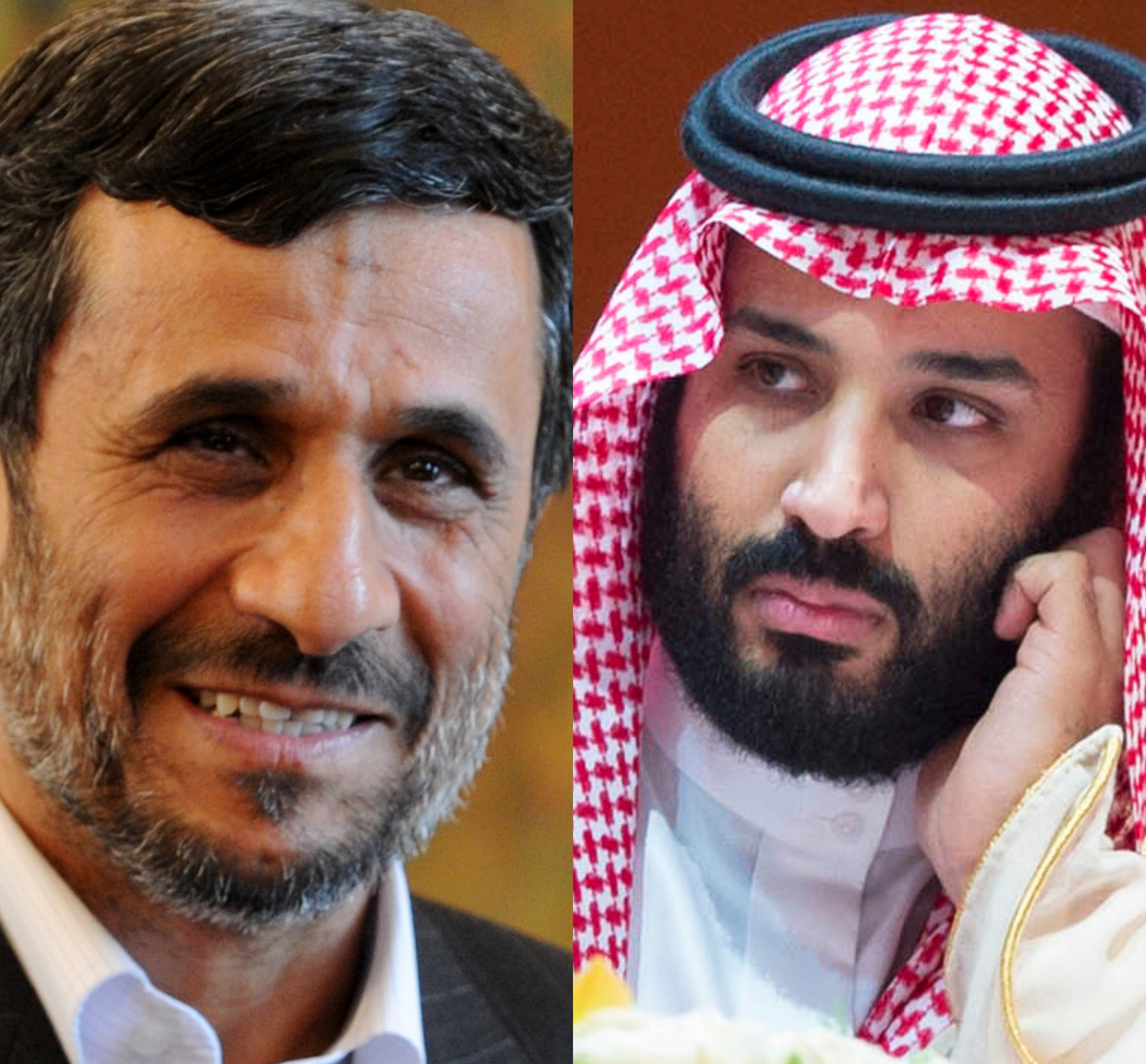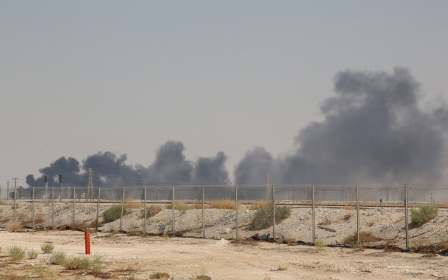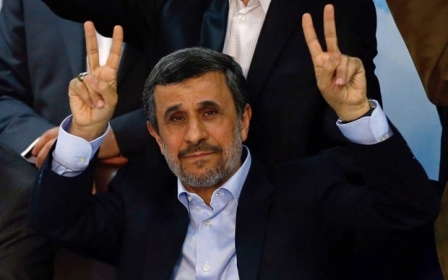Iran’s Ahmadinejad sends letter to Saudi crown prince offering to mediate in Yemen conflict

In a rare amicable letter amid longstanding tensions between the two countries, Iran’s former president Mahmoud Ahmadinejad has invited Saudi Arabia’s Crown Prince Mohammed Bin Salman for talks to end the war in Yemen, Al-Arabiya reported on Monday.
According to the Saudi-owned news outlet, Ahmadinejad has conveyed his willingness to mediate among the warring parties in Yemen to end the war, five years since the beginning of the international military intervention led by Saudi Arabia.
The war is largely viewed as a proxy conflict between Saudi Arabia, which supports the government of exiled Yemeni President Abd Rabbuh Mansour Hadi, and Iran, which backs the Houthi rebels.
Efforts to bring the war to an end have so far failed, causing thousands of deaths and putting millions of already impoverished Yemenis on the brink of starvation.
In his letter, a copy of which was sent to United Nations Secretary-General Antonio Guterres, Ahmadinejad proposed the formation of a committee of “internationally trusted figures” to facilitate dialogue between the rival parties in the Yemen conflict.
“I am very confident that, with your constructive cooperation, we will be able to implement effective initiatives that could play a crucial role in putting an end to the status quo and end the war and the rivalry,” he said, according to Al-Arabiya.
“There is no doubt that the high costs of the war, if used for building and reconstruction through a joint regional action plan, will eliminate the spectre of fear and poverty and death from the [Yemeni] people.”
There was no immediate response to the letter from the Saudi government or the UN.
The letter comes in contradiction to official Iranian rhetoric about Saudi Arabia, the Islamic Republic’s archrival in the region.
Supreme Leader Ayatollah Ali Khamenei has repeatedly decried the Saudi government’s regional policies, dismissing it in a 2019 speech as “despotic, dictatorial, corrupt, tyrannical and dependent".
Meanwhile, bin Salman, who is next in line for the throne, has described Khamenei as “the new Hitler”, prompting Iranian leaders to accuse him of being “immature” and “adventurist”.
Ahmadinejad was first elected president in 2005, and remained in office until 2013.
His disputed win in the 2009 election prompted the Islamic Republic's biggest protests and a security crackdown in years, in which dozens of people were killed and hundreds arrested.
He also led the Alliance of Builders of Islamic Iran, a coalition of conservative political groups in the country, and is currently a member of the powerful Expediency Council appointed by the supreme leader.
In 2016, Khamenei told Ahmadinejad not to stand again in the following presidential elections, effectively destroying his chances of running a successful campaign against incumbent Hassan Rouhani.
The populist politician has enraged the West with his Holocaust denial, along with statements advocating the elimination of Israel and his arguments that the 9/11 attacks were staged by the US.
In his letter, Ahmadinejad referred to himself as "a member of the human community", and said that, pending the approval of bin Salman and Houthi leader Abdelmalek Badruddin al-Houthi, he was ready to form the international committee for mediating Yemen talks "with the aim of ending the crisis and reinstating peace and friendship".
However, a spokesman for Iran’s mission to the UN, Alireza Miryousefi, told the New York Times that Ahmadinejad’s letter was no more than an individual attempt that does not reflect the Iranian government’s position.
“His views, as long as he remains a private citizen like many other Iranians, have no relation to the government and administration policies at this moment,” Miryousefi said.
Middle East Eye propose une couverture et une analyse indépendantes et incomparables du Moyen-Orient, de l’Afrique du Nord et d’autres régions du monde. Pour en savoir plus sur la reprise de ce contenu et les frais qui s’appliquent, veuillez remplir ce formulaire [en anglais]. Pour en savoir plus sur MEE, cliquez ici [en anglais].





